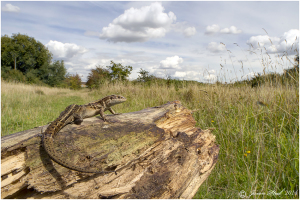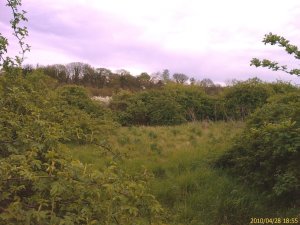Reference the news Shopper’s latest Erith Quarry article:
http://www.newsshopper.co.uk/news/14762148.Hundreds_of_snakes_and_lizards_ca/
It’s very disappointing to see that an old, rather selective, photo giving the impression that the quarry site is an unkempt rubbish dump has been wheeled out again to contrast with the ‘developer’s’ artist’s impressions of their allegedly ‘idyllic’ alternative, and that their dismissal of the site as ‘neglected’ and ‘overgrown’ has been taken at face value.
In fact the quarry is a Grade 1 Site of Importance for Nature Conservation in Bexley. Andersons, however, went out of its way to try and undermine the perceived actual and potential worth of the excellent scrub habitat, which simply required some basic management, contrary to their self-serving contention that the only way to ‘save’ it, was to build on most of it. The Council’s Biodiversity Officer sat in the planning meeting and claimed that there would be ‘no loss and a net gain in biodiversity’ which defies common sense, and zero evidence was presented to back that claim.
The number of reptiles alone highlights its importance. The reality behind the spin is that those caught have been crowded into a very small part of the site, whilst the area they are then going to be released into is half that actually required on the basis of the numbers and density found. These are species in decline that are the subject of national and London level biodiversity action plans to re-build numbers. Bexley Council, however, repeatedly approves building on key reptile sites in the Borough, and despite having a policy of ‘resisting development that will have a significant impact on the population or conservation status of protected species and priority species as identified in the UK, London and Bexley Biodiversity Action Plans;’ has three times declined to answer a written request to spell out how much impact it deems to be ‘significant’, making it impossible to properly hold anyone to account. In none of these cases has the Biodiversity Officer presented Councillors with any information as to how many populations of these animals there are in the Borough, what their numbers are and how vulnerable to loss they are – or, indeed, just how few of them the Council thinks it’s going to be OK to have left.

Just how few Lizards does Bexley Council think should be left in the Borough as it repeatedly votes to concrete over our key reptile sites?(Photo: Jason Steel)
The same battle is on with regard to the southern part of Crayford Marshes, with the applicant again arguing that only a small part of this Green Belt, SINC site actually has any real wildlife value. This time the future of Skylark as a breeding bird in Bexley is at stake (down more than 50% nationally), and the Corn Bunting (down 86% since the late 60s) as a breeder in London as a whole, yet without proper discussion Bexley’s planning committee recently agreed, in effect, with a ‘developer’s’ contention that the fewer there are left of something in Bexley, the less important it is to protect it, even if it has suffered a huge national decline.
With the latest State of Nature Report (2016) having just been published, showing more clearly than ever before that nature is in serious trouble across the UK, with 56% of species having declined over the last 50 years, and 15% at risk of disappearing from our shores altogether, the one thing that is clear is that whatever the policy says, Bexley Council is in practice committed to exacerbating this dire situation by impoverishing nature in our Borough, rather than making a net contribution to restoring it.
A petition about Crayford Marshes is here:
Chris Rose, Vice-chair, Bexley Natural Environment Forum and co-founder, Bexley Wildlife web and Facebook sites.


Is that the same ( discredited ) bio diversity officer that failed to attend the Crossness hearings,by any chance?
You might suspect that but I couldn’t possibly comment. We’re still beavering away behind the scenes trying to constrain the Council in ways that make it difficult for it to do this again.
I went to The Quarry open day last weekend. The plans for the site are just another sprawling mass of flats and houses. One school and a football pitch, and little pockets of nature conservation patches. Very disappointing and such a shame that the public have not had access to this beautiful natural area for all these years.